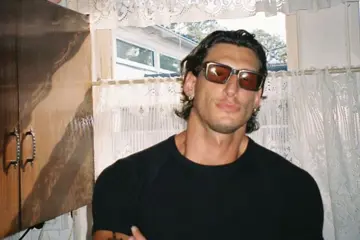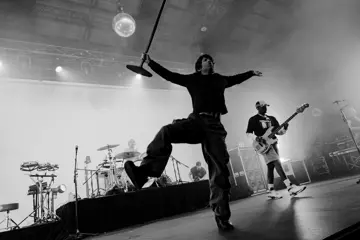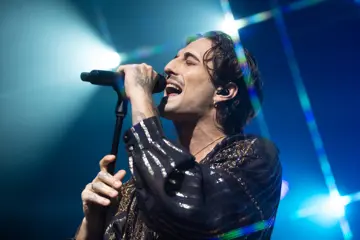After two years of #OscarsSoWhite anger, the unveiling of the nominations for the 89th Academy Awards seem, in many ways, like a response to the public critiques of Hollywood’s diversity problem: with seven people of colour amongst the acting nominations, and three distinctly African-American films garnering Best Picture gongs, and earning multiple nominations: Moonlight with eight, Fences with four, and Hidden Figures with three.
Just as notable, though far less publicised, will be the fact that the Best Documentary category boasts three searing studies of race, and racism, in America: Raoul Peck’s I Am Not Your Negro, Ava DuVernay’s 13th, and Ezra Edelman and Caroline Waterlow’s epic O.J.: Made In America. The presence of all these films made the Oscars full of history.
For many, the unveiling of this year’s Oscar nominees befits a day of celebration.
Bradford Young became the first-ever black cinematographer to be nominated, for his sterling work on Denis Villeneuve’s Arrival (which garnered eight nominations). Barry Jenkins became only the second African-American to be nominated for Best Director and Best Screenplay, after John Singleton 25 years ago. Denzel Washington earnt his eighth acting nomination, and became the seventh person to be nominated as both Best Director and Best Actor for the same film, Fences. His co-star, Viola Davis, became the first black actress, ever, to earn three Oscar nominations; and the Best Supporting Actress category features, for the first time ever in an acting category, three people of colour. Fences also garnered a Best Adapted Screenplay for its original playwright, August Wilson, who died in 2005.
For many, the unveiling of this year’s Oscar nominees befits a day of celebration. Let’s just hope that this isn’t a simple case of correction, an attempt to pacify protestors, and instead, marks the beginning of a change not just in voting mindset, but Hollywood productions. The film industry has a long, inglorious history, of institutionalised sexism and racism, of using profit motives to justify all kinds of deplorable behaviour. It’s no surprise that its Best Director and Best Cinematographer ranks, again, are filled with men, because so few women have, historically, been allowed to fill those roles. So much still needs to change, and hopefully the 2017 Academy Awards marks a tipping point, and not just a moment of self-congratulation; Hollywood’s answer to ‘fixing’ racism akin to Sandra Bullock hugging her housemate at the end of Crash (still the worst-ever film to win Best Picture).
Don't miss a beat with our FREE daily newsletter
The Australian films that crashed this year’s Oscars were, too, works contributing the feeling of greater diversity. Tanna, the first-ever Best Foreign Language Film nominee from Australia, was shot in Vanuatu, with a cast of local non-professionals, and spoken in the regional dialect Nauvhal. Lion, which earnt a Best Picture nomination, was half shot in India, and is a story of cultural identity; and garnered gongs for its actors (Dev Patel and Nicole Kidman), cinematographer (Greig Fraser) and screenwriter (Luke Davies).
And, Hacksaw Ridge, an Australian film featuring an Australian cast telling an American story in American accents, was also nominated for Best Picture. More notably, Mel Gibson — are we still counting him as an Australian? — received an unexpected Best Director nomination, thereby continuing a complete career rehabilitation. Forget diversity, the reembrace of Ol’ Sugartits shows the presence of another narrative: forgiveness.
Other Oscar narratives? La La Land scored 14 nominations, tied for the most all-time with All About Eve and Titanic. Meryl Streep, that Oscar machine, received her 20th nomination, far-and-away the most for any actor. More notable was that the actual greatest actress in the world, Isabelle Huppert, received her first-ever nomination, for her incredible work in Paul Verhoeven’s Elle. Amy Adams, this past decade’s Oscar bridesmaid, was the biggest ‘snub’, missing out for her work in Arrival. Mica Levi’s awesome, discordant score for Jackie was nominated, making her only the eighth woman to receive a Best Original Score nod. Suicide Squad, maybe 2016’s worst film, got a nomination, for Best Hair and Make-up. And The Lobster, 2015’s best film, scored a best screenplay nomination for its Greek weird-wave icons Yorgos Lanthimos and Efthymis Filippou.
As always, the collected nominations are a strange lot, a mixture of the awesome and awful. The question of whether a self-congratulatory orgy of All-American excess need be a bellwether of cultural values still lingers, but, at a time in which an unrepentant racist has been appointed to America’s most powerful position, we’ll take moral victories wherever we can.
More Academy acceptance and appraisal of films in other languages, from other cultures, and from other countries, would be a hopeful next step. As would curbing Category Campaigning Fraud, where leading actors — like Viola Davis in Fences, and Dev Patel in Lion — are put into the supporting category solely to increase their chances of a nomination. But, after the genuine outrage of the past couple of years, anger, this year, doesn’t feel like the right emotion. And that’s a nice change.
Best Picture
Arrival
Fences
Hacksaw Ridge
Hell Or High Water
Hidden Figures
La La Land
Lion
Manchester-by-the-Sea
Moonlight
Best Actor
Casey Affleck (Manchester-by-the-Sea)
Andrew Garfield (Hacksaw Ridge)
Ryan Gosling (La La Land)
Viggo Mortensen (Captain Fantastic)
Denzel Washington (Fences)
Best Actress
Isabelle Huppert (Elle)
Ruth Negga (Loving)
Natalie Portman (Jackie)
Emma Stone (La La Land)
Meryl Streep (Florence Foster Jenkins)
Best Supporting Actor
Mahershala Ali (Moonlight)
Jeff Bridges (Hell Or High Water)
Lucas Hedges (Manchester-by-the-Sea)
Dev Patel (Lion)
Michael Shannon (Nocturnal Animals)
Best Supporting Actress
Viola Davis (Fences)
Naomie Harris (Moonlight)
Nicole Kidman (Lion)
Octavia Spencer (Hidden Figures)
Michelle Williams (Manchester-by-the-Sea)
Best Director
Damien Chazelle (La La Land)
Mel Gibson (Hacksaw Ridge)
Barry Jenkins (Moonlight)
Kenneth Lonergan (Manchester-by-the-Sea)
Denis Villeneuve (Arrival)
Best Cinematography
Greig Fraser (Lion)
James Laxton (Moonlight)
Rodrigo Prieto (Silence)
Linus Sandgren (La La Land)
Bradford Young (Arrival)
Best Original Screenplay
Damien Chazelle (La La Land)
Yorgos Lanthimos, Efthymis Filippou (The Lobster)
Kenneth Lonergan (Manchester-by-the-Sea)
Mike Mills (20th Century Women)
Taylor Sheridan (Hell Or High Water)
Best Adapted Screenplay
Luke Davies (Lion)
Eric Heisserer (Arrival)
Barry Jenkins, Tarell Alvin McCraney (Moonlight)
Allison Schroeder, Theodore Malfi (Hidden Figures)
August Wilson (Fences)
Best Documentary
Fire At Sea
I Am Not Your Negro
Life, Animated
O.J.: Made In America
13th
Best Animated Film
Kubo And The Two Strings
Moana
My Life As A Courgette
The Red Turtle
Zootopia
Best Foreign Language Film
A Man Called Ove
Land Of Mine
The Salesman
Tanna
Toni Erdmann















